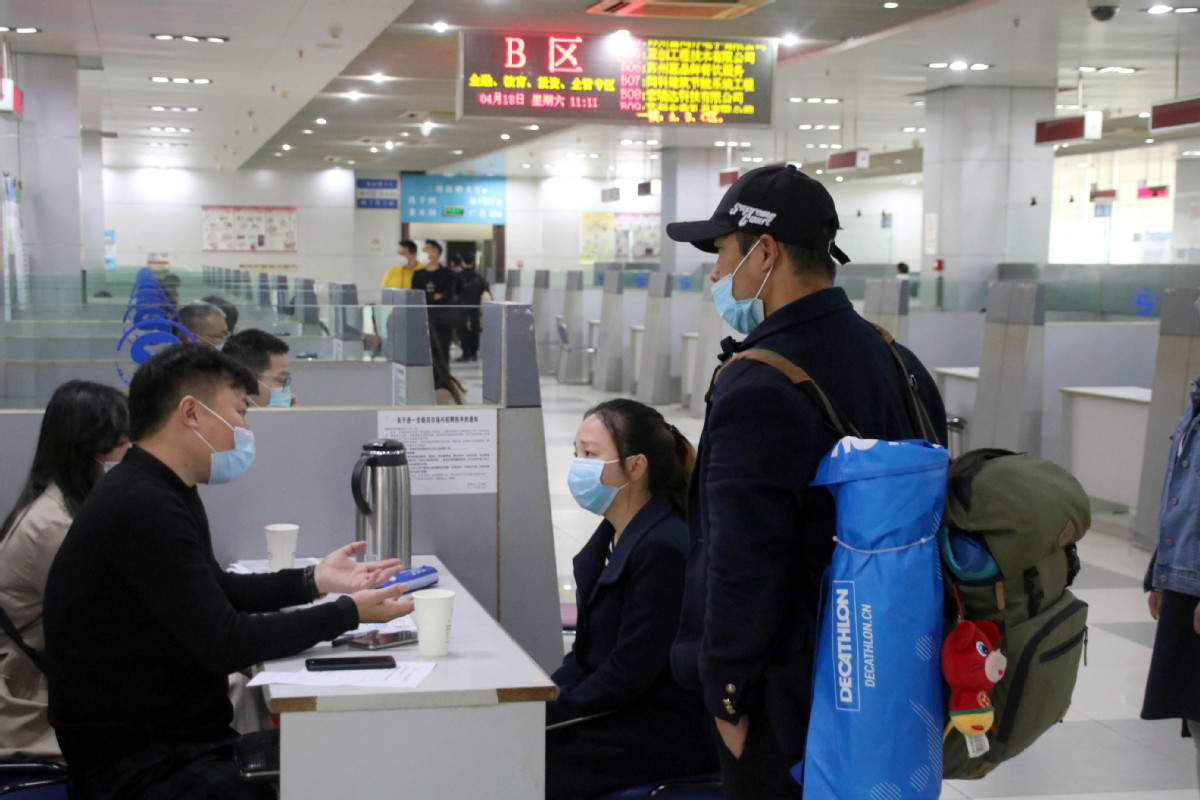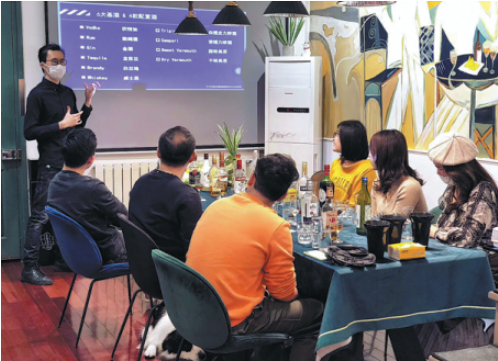
From the People's Daily App.
This is Story in the Story.
According to a report from Zhaopin, about 95 percent of white-collar workers are willing to change jobs, among which 70 percent have obtained offers or are taking action to seek new work opportunities.
Although the COVID-19 outbreak has reshuffled some industries, people are more active with their career planning and more willing to switch jobs upon returning to the workplace, as new work opportunities are arising from e-commerce, online healthcare, education, and entertainment.
A survey published by Beijing-based food-delivery app Meituan found that 75,000 new employees joined the company's army of couriers during the first month of the pandemic.
There is a proverb that says, "Necessity is the mother of invention.” What this means is that a problem is often the driving force behind innovation, and it seems many white-collar employees have eagerly seized upon the new opportunities that the COIVD-19 pandemic has created.
Today’s Story in the Story looks at how the COVID-19 pandemic has provided working adults with opportunities to make lucrative career changes they never considered before the outbreak.

An applicant (second from right) attends an interview at a job fair in Suzhou, Jiangsu province, on Saturday. (Photo: China Daily)
For 25-year-old Chen Guibin, the crisis has compelled him to leave his career in the culinary sector.
Before the outbreak, Chen was working as a chef in a Sichuan restaurant called Wa Zhi Dao in Rugao, Jiangsu Province. Even though the restaurant resumed its takeout service after it closed, Chen was not called back for work.
"I don't earn anything if I don't go to work," said Chen, who did not receive a fixed salary as a chef.
"Although I have some savings, I was anxious because I needed to pay $284 for my car loan every month. I couldn't afford to wait at home. I needed to find work quickly."
Chen found a job packaging toys in a factory, but the work turned out to be too intense for him. He then tried to open his food-delivery service, only to be shut down because he did not possess the required permit.
He took a customer-service job with the delivery company, SF Express.
"I feel relieved," he said, adding that he has a one-hour lunch break and is earning a monthly wage of 3,000 yuan during his probation.
"The restaurant called me back in mid-March but offered only half of my previous wage. That was when I decided to stick with this career change. Besides, SF Express is a leader in the industry. I see more room to improve myself here."

An Airbnb establishment's owner in Shanghai uses the space to hold cocktail courses. (Photo: China Daily)
Chen isn't the only person to have made the switch from the catering industry to courier services. Over in the tourism sector, Huang Yu, the owner of a small travel agency in Beijing, has had to revamp his business model in the wake of the outbreak.
"Having worked in the tourism sector for 26 years, I knew this problem would be serious once I learned the news," Huang said. "I know because I experienced the SARS outbreak in 2003."
His last tour for the quarter was a trip to Iran. After returning to China, Huang spent more of his time handling cancellations and refunds.
"I initially expected business to rebound, but the situation has worsened. I think it's game over for outbound travel this year."
Having already built an extensive network of customers in his years as a travel agent, Huang took to selling various products, including agricultural products and tourist souvenirs, via WeChat. He also signed up for an online course to become an insurance agent with one of the country's leading insurance companies.
During his spare time, Huang produces new podcasts on Ximalaya, where he has been sharing his knowledge about the culture and history of countries in the Middle East since 2018.
Pan Rongda, the owner of a bed-and-breakfast establishment in Shanghai, agrees with this sentiment, noting that business should improve.
Pan halved the number of rooms for rent on listing platform Airbnb and started to offer a traditional shikumen-style guesthouse for photoshoots.
"This is my way of retaining customer loyalty," he said. "Sooner or later, this pandemic will pass. I have to hold on to my customers until then."
(Produced by Nancy Yan Xu, Lance Crayon, Brian Lowe and Da Hang. Text from China Daily.)


